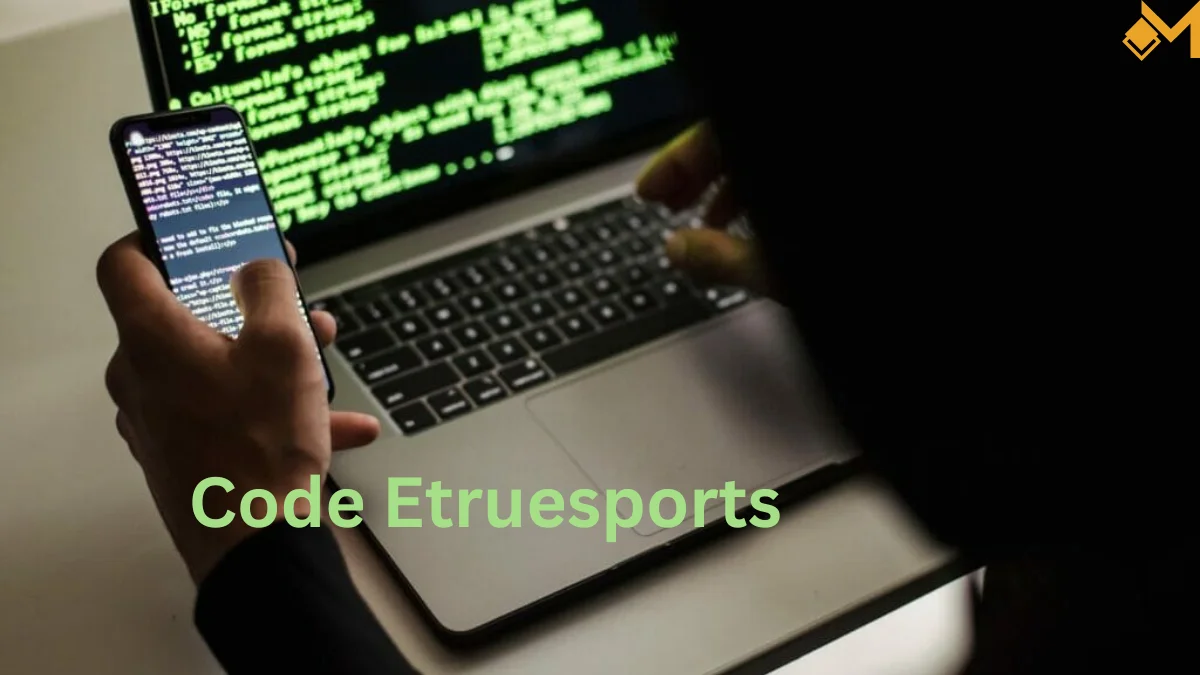What Are eSports?
eSports, or electronic sports, refers to competitive video gaming where players or teams compete against each other in various game titles. These competitions can range from small local tournaments to large-scale international events with millions of spectators and substantial prize pools.
Importance of Codes eTruesports
As the eSports industry continues to grow, the importance of maintaining a fair, respectful, and professional environment becomes paramount. Codes eTruesports and specific rules help regulate behavior, ensure fair play, and uphold the integrity of competitions. Without these codes, the chaotic and unregulated nature of the early gaming days could resurface, jeopardizing the industry’s credibility.
History of eSports Regulations
Early Days of Competitive Gaming
In the beginning, competitive gaming was a grassroots movement, often organized by players themselves with minimal oversight. This lack of formal regulation led to inconsistent rules and occasional disputes.
Evolution of eSports Governance
As eSports grew in popularity, formal organizations and leagues emerged to standardize rules and enforce codes of conduct. Bodies like the Electronic Sports League (ESL) and Major League Gaming (MLG) set early standards, laying the foundation for today’s more sophisticated regulatory environment.
General Codes of Conduct
Respect and Fair Play
At the core of eSports codes, eTruesports is the principle of respect. Players are expected to show respect to their opponents, teammates, officials, and fans. Fair play is essential, meaning that players should compete honestly and not seek unfair advantages.
Integrity in Competition
Integrity is crucial in maintaining the trust and excitement of eSports. Players must avoid any form of cheating, including exploiting game bugs, using unauthorized software, or engaging in match-fixing.
Communication Etiquette
Professionalism in communication, whether in-game or on social media, is mandated. Abusive language, harassment, and hate speech are not tolerated. Players are encouraged to engage positively with the community and represent their teams well.
Also read: IntrepidFood.EU: Unveiling the Culinary Adventures
Game-Specific Rules
Overview of Popular eSports Titles
Each eSports title has its own set of rules tailored to its gameplay mechanics and competitive environment. Understanding these is vital for players and teams.
League of Legends Regulations
Riot Games, the developer of League of Legends, has detailed rules covering everything from player eligibility to match procedures. This includes the draft phase, game pauses, and acceptable behavior.
Dota 2 Guidelines
Valve Corporation’s Dota 2 has regulations that govern tournament play, player conduct, and technical issues. The rules ensure that all matches are played fairly and smoothly.
Overwatch Rules
Blizzard’s Overwatch League has comprehensive rules, including player contracts, match formats, and behavior guidelines. These ensure a professional and competitive environment.
Tournament-Specific Rules
Major Tournament Organizers
Various organizations host major eSports tournaments, each with its own specific rules and standards.
ESL (Electronic Sports League)
ESL is one of the oldest eSports organizations, known for its strict adherence to rules and fair play standards. Their tournaments are well-regarded for their professionalism.
DreamHack Events
DreamHack, known for its large-scale LAN parties and eSports events, has specific rules for each tournament, ensuring smooth operations and fair competition.
The International (Dota 2)
The International, Dota 2’s premier event, has its own set of stringent rules covering everything from team rosters to match conduct, ensuring the highest level of competition.
Player Behavior and Ethics
Expected Conduct
Players are expected to uphold high standards of behavior both in and out of the game. This includes showing sportsmanship, cooperating with officials, and maintaining a professional demeanor.
Consequences of Misconduct
Violations of conduct codes can result in various penalties, from fines and suspensions to permanent bans. These measures are in place to maintain the integrity of the sport.
Notable Incidents and Lessons Learned
The eSports community has seen several high-profile incidents of misconduct, each serving as a lesson and reinforcing the importance of strict codes and penalties.
Cheating and Anti-Cheat Measures
Common Forms of Cheating
Cheating in eSports can take many forms, including using aimbots, wallhacks, and other unauthorized software. These undermine the competitive integrity of the game.
Technological Solutions
To combat cheating, eSports organizations employ advanced anti-cheat technologies. These systems detect and prevent the use of unauthorized software during competitions.
Case Studies of Cheating in eSports
Analyzing past cases of cheating helps in understanding how cheats operate and how to effectively counter them. High-profile bans serve as deterrents to potential cheaters.
Drug Policies in eSports
Performance-Enhancing Drugs
Just like traditional sports, eSports has issues with performance-enhancing drugs. These can include stimulants that improve reaction times and focus.
Testing Procedures
To ensure a level playing field, many eSports tournaments conduct drug testing. Players found using banned substances face severe penalties.
Impact on Player Performance
Using drugs can have serious health implications and long-term effects on player performance. Education and strict enforcement help mitigate these risks.
Streaming and Content Creation Guidelines
Rules for Professional Streamers
Many eSports players also stream their gameplay. There are guidelines they must follow to ensure their content remains appropriate and professional.
Content Ownership and Rights
Players and organizations need to understand the legal aspects of content creation, including who owns the rights to the content produced during streams.
Monetization Policies
Streaming can be a significant revenue source for players. Understanding the rules around monetization, including sponsorships and ads, is crucial.
Team Management and Contracts
Player Contracts and Agreements
Contracts outline the obligations of players and teams. These can include salary, benefits, and behavioral expectations.
Team Obligations
Teams must provide adequate support for their players, including coaching, healthcare, and legal assistance.
Conflict Resolution
Disputes between players and teams are inevitable. Having clear procedures for conflict resolution helps maintain harmony within the team.
Sponsorship and Advertising Codes
Sponsorship Agreements
Sponsorships are a significant part of eSports revenue. Agreements need to be clear about what is expected from both the sponsor and the team/player.
Advertising Ethics
Ethical considerations in advertising include transparency with the audience and ensuring that all promotions are honest and not misleading.
Brand Collaborations
Successful brand collaborations can enhance the visibility of both the eSports team and the sponsoring brand, provided they align with ethical standards.
Health and Wellness Policies
Physical Health Guidelines
Players need to maintain their physical health, which includes regular exercise, proper nutrition, and avoiding repetitive strain injuries.
Mental Health Support
Mental health is just as important. Organizations provide resources and support for players to manage stress and mental well-being.
Recommended Practices
Best practices for health and wellness in eSports include regular breaks, ergonomic setups, and access to mental health professionals.
Diversity and Inclusion in eSports
Promoting Inclusivity
eSports organizations are working towards greater diversity and inclusivity, ensuring that all players feel welcome regardless of their background.
Addressing Discrimination
Discrimination has no place in eSports. Strict policies and proactive measures are in place to combat any form of bias or harassment.
Success Stories
Highlighting success stories of diverse players and teams helps inspire and encourage more inclusive participation in eSports.
Future of eSports Regulations
Emerging Trends
The eSports landscape is continually evolving. Keeping an eye on emerging trends helps anticipate future regulatory needs.
Potential Changes
Potential changes in regulations could include more comprehensive drug testing, stricter anti-cheat measures, and enhanced player welfare protocols.
The Role of Technology
Advancements in technology will continue to shape eSports regulations, from better anti-cheat software to more sophisticated health monitoring tools.
Conclusion
Codes eTruesports and regulations are essential for maintaining a fair, respectful, and competitive environment. They cover everything from player conduct to game-specific rules and tournament regulations. These codes ensure the integrity of competitions, protect players’ rights, and promote a positive and professional image of eSports. As the industry grows, so too will the sophistication and importance of these regulations.











